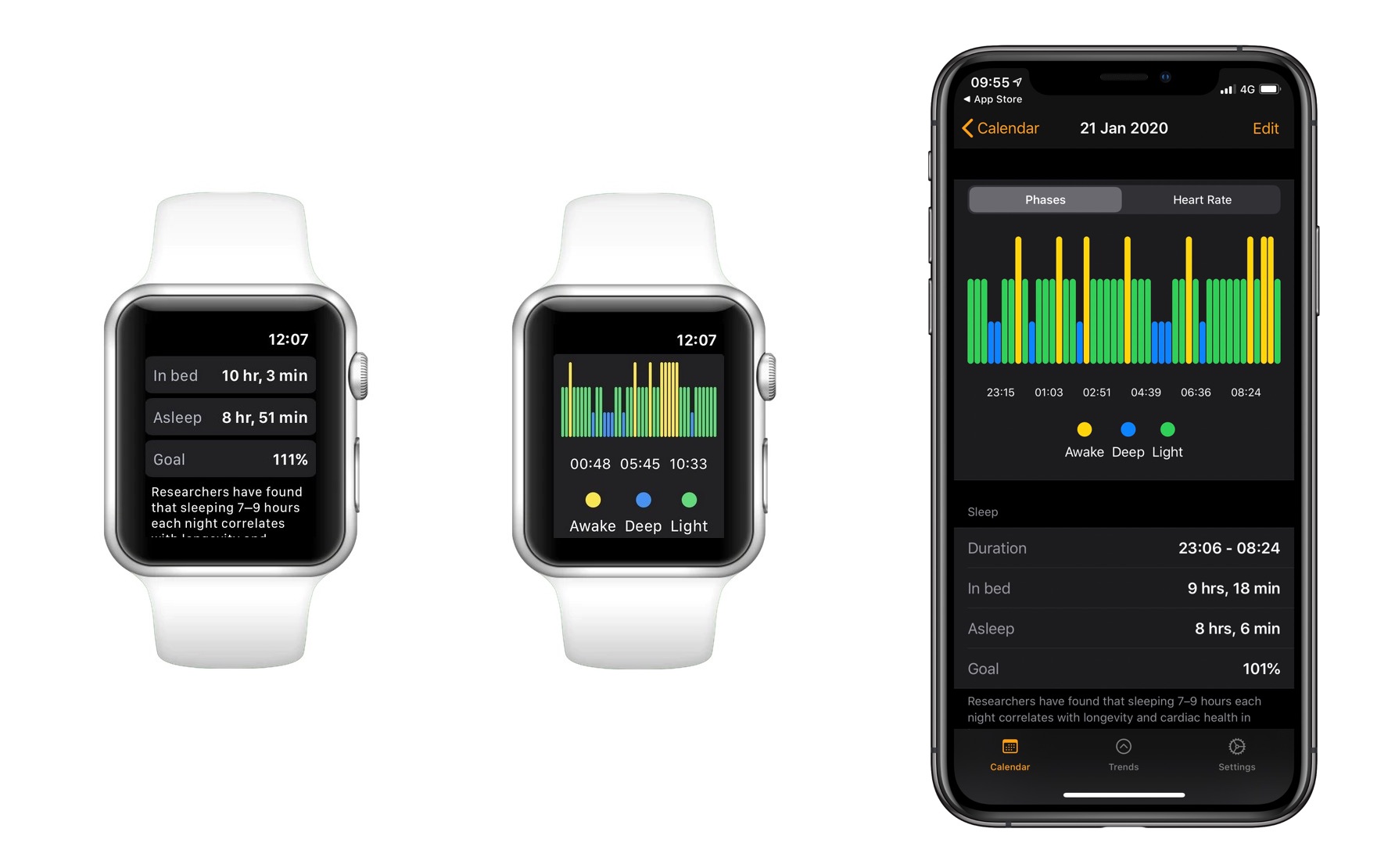
Minimalist sleep tracking app NapBot has received an update that brings a range of improvements for both watchOS and iOS components of the app.

The app uses the new CoreML on-device machine-learning capabilities that come with iOS 13 and watchOS 6 to understand users' sleep patterns, and version 1.3 of NapBot includes a fully independent Apple Watch app for the first time.
That means users no longer have to install the iPhone app to use it. Instead, NapBot can be downloaded directly on their wrist using the dedicated Apple Watch App Store. The only limitation users should be aware of is that the Apple Watch app only shows sleep data from the previous day, whereas the iPhone app offers a full sleep history.
The new dedicated version of the Watch app also comes with a redesigned Siri watch face card, and complications for every type of watch face and every complication position, so there's plenty of display customization to be had.
In addition, there's support for daily notifications for tracked sleep, a new today widget for iPhone, a new awake minutes trend with insights, and background tracking for Apple Watch.
NapBot, available on the iOS and watchOS App Stores, runs on a subscription model of $1 per month or $10 per year, but there's a free 7-day trial available so users can try the app before they commit.
Article Link: Sleep Tracking App NapBot Gains Independent Apple Watch App, New Complications, and More

